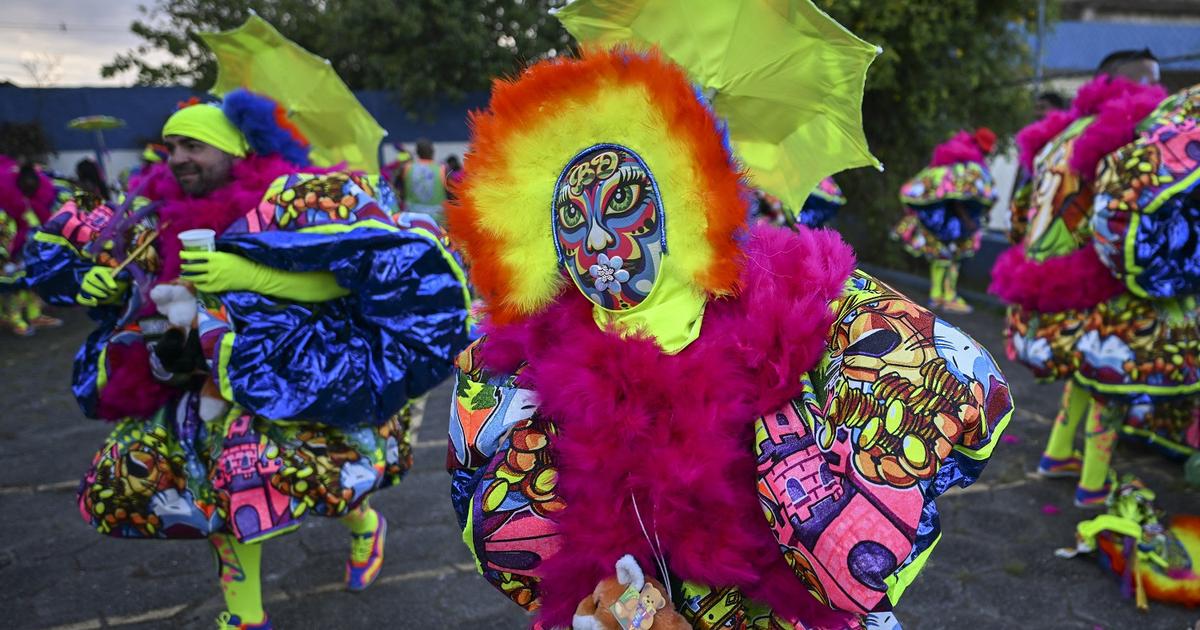The official start of Rio's carnival was given on Friday, with the
"blocos"
, traditional musical processions through the city which sometimes attract up to several hundred thousand people, who come to dance, laugh and drink.
But not all women feel safe.
Recommendations have been put in place: avoid being alone in a crowd, opt for canned drinks, use a QR code in an emergency:
A survey, carried out in January among 1,500 people by the Locomotiva research institute, revealed that half of the women questioned (50%) had been victims of attacks during previous editions of the carnival.
And seven in ten Brazilian women (73%) fear being victims of sexual harassment during the festivities.
The explanation can be summed up in two words: alcohol and machismo, according to Erica Paes, specialist in women's safety.
“Men think they have the right and power over women's bodies
,” explains Ms. Paes, also a world champion in MMA (mixed martial arts), to AFP.
The Brazilian, 38, created and coordinates the state's
“Empoderadas”
(
“Empoderadas”
) program, which has stepped up its efforts to provide information on what behaviors to adopt, what situations to avoid and what to do in case of emergency.
“Awareness is the main tool to protect women today, so that they know that they may be victims of violence and that they have someone to turn to for help
. ”
"No is no"
Brazil passed the
“No Means No”
law in December , which establishes mandatory protocol in entertainment venues to protect victims of assault, encourage reporting and preserve possible evidence.
This rule is inspired by the "No callem"
system
in Catalonia (
"Let's not be silent"
), which made it possible to bring to justice the Brazilian footballer Dani Alves, accused of having raped a woman in a nightclub in Barcelona, which he denies.
“Let's disseminate vital information and reinforce the idea that once the woman says no, it is harassment
,” explained Joyce Trindade, from the women's secretariat of the Rio prefecture, responsible for the Carnival+Safe campaign.
Also read: The world of work still perceived as unequal and sexist
This year, help points for women will be set up at the Sambadrome and on Intendente Magalhaes Avenue, another main route of the parade.
QR codes with information (in four languages) on how to get help have been installed in many public spaces, including the toilets at the Sambodrome.
On buses, trams and metros, crowded during the festivities, it is not uncommon to meet a team of Empoderadas who have come to give advice to passengers, and in particular this: if you are going to drink, make sure to being surrounded by a group of friends.
Not up to par
Outside the Nise da Silveira psychiatric hospital, in the north of Rio, the Loucura suburbana (suburban madness) procession is tying up the final details and the excitement is at its height.
Among the hundreds of revelers gathered, around ten women in purple and sequins from the Carnaval+Safe campaign distribute stickers and fans with the slogans
“Respect girls”
and
“No means no”
.
But for some, that's not enough.
“The campaigns are not yet up to the seriousness of the situation for women during the carnival
,” says Danielle Ribeiro, 38, who takes part in the procession.
It’s better than nothing, but I think that in itself it doesn’t solve the problem.”
The historian would like more places where it would be possible to make a report, and more severe penalties for attackers.
It is up to men
“to have to construct another way of being during the carnival”
.

